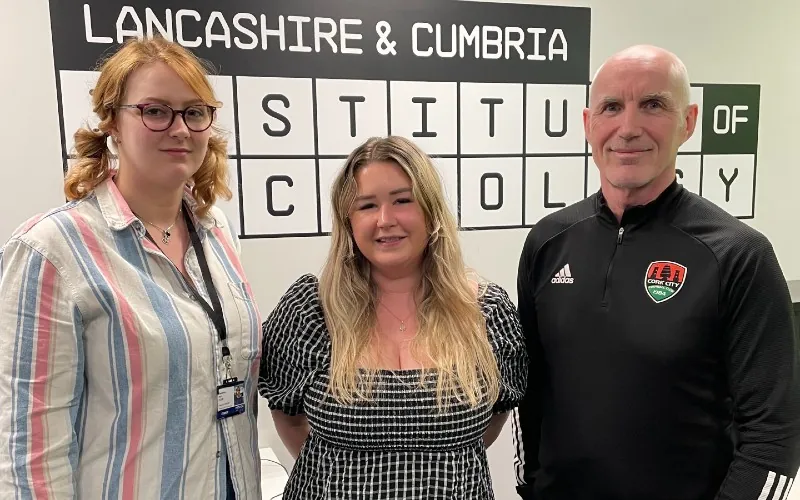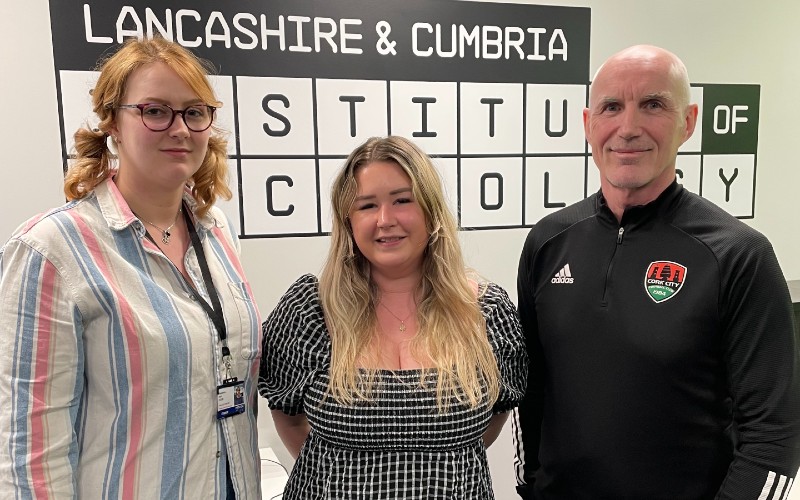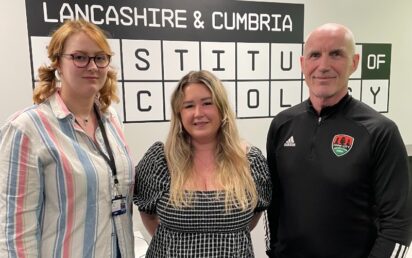When the pandemic put a stop to face-to-face counselling sessions, the industry had to rely on technology to deliver vital services.
Four years on, the legacy of this shift is a need to teach a completely new set of skills to students training to become counsellors.
Step forward the Lancashire and Cumbria Institute of Technology (IoT), a collective of seven colleges and three universities established to tackle challenges like this one.
The idea, a government initiative, is that businesses tell the IoT about the skills they need and courses are co-created to produce the employees they require now and in the future.
A total £8.7 million has been invested in technology across the partner colleges of Blackpool and The Fylde, Burnley, Nelson and Colne, Lancaster and Morecambe, Preston, Blackburn and Runshaw – everything from virtual reality IGLOOs to robotic arms, 3D printers and CNC machines.
The IoT’s Preston College site is benefiting through investment in tech that will enable the counsellors of the future to develop these different skills. Preston offers both a level four diploma in counselling and a foundation degree (level four and level five) in Person-Centred Counselling and Psychotherapy.
“The shift in the way people now want to access counselling requires a unique set of skills that make the job different to how it would be in person, which used to be the gold standard,” says lecturer Ian Sanderson.
“What happens if there’s a disconnection on the call; how do you read someone’s body language over the phone; and how can you offer the same level of service using technology?
“There are all sorts of ways that the industry has moved on and that requires us to teach a different set of skills because our traditional model of 9-5 in-person appointments has gone.”
The technology in use at Preston allows learners to simulate counselling sessions using video call, voice call and text, while learning the nuances of the language they must use and the cues they must pick up on.
“There’s an epidemic of young people with mental health problems and we need to keep up with new ways of engaging with them,” says Sanderson (below).

Level 3 student Jenna Ward believes the use of technology is a great way to allow even more people to access counselling. “We’ve talked about the impact of this on people with agoraphobia or extreme anxiety disorder who might struggle to get to an appointment, this could really help them,” she says.
“We’re learning how to text in an appropriate way and considering whether it makes you less professional to put an emoji in an email, for example. That might help you engage with some people but it won’t work with everyone.”
Ruth Omokhui, studying on the foundation degree, adds: “People with disabilities may not be able to read or see texts, so then we have to consider using voice notes. It’s a completely different set of skills that we don’t have yet.”
The students praised the facilities used to teach their courses.
Learner Alex Hull, a level three student about to go onto the foundation degree course, says the facilities were a stand-out aspect of the course. “The areas that we’ve got here are fantastic, it’s like being in a real-world environment. The staff are all really accessible and happy to help. I looked at a university when I was looking at courses but the set-up here is superb.”
The course involves the requirement to complete 100 hours on placement, where these more diverse skills will be needed from day one. “We have really good spaces here to prepare you for that 100 hours, which means you know what to expect when you go out into the world,” Ward says.
Omokhui agrees. “I’m a very practical person so I need to see something to really understand it. Because we were working in the facilities here, I knew what to expect so I wasn’t nervous when doing my placement.”
In future, there may be other ways of communicating with counselling patients, so the transferable skills being learned on the courses mean tomorrow’s counsellors will be ready.
“There’s potential for us to use VR in future – or maybe become an avatar that pops up on Fortnite to remind a player they’re due a counselling session,” Sanderson adds. “It’s a fascinating shift and one we need to stay ahead of.”
The Lancashire and Cumbria Institute of Technology has just launched its first-ever Barometer Report, which takes a measure of the region’s skills challenges based on insight from its business engagement experts.
It explores trends they are experiencing when carrying out employer outreach work, the needs businesses are reporting when it comes to employee training and solutions the IoT has come up with to assist economic growth.
‘Lancashire needs actions, not words’ to realise business potential


